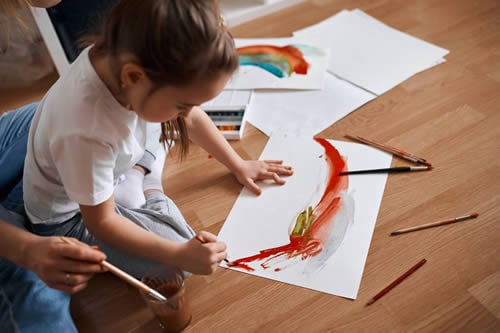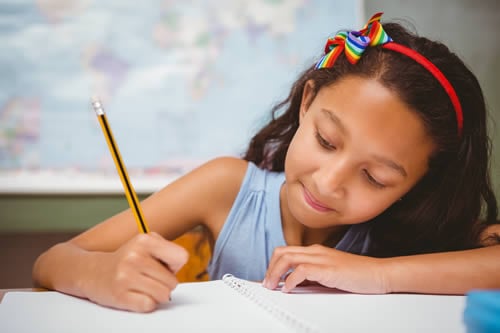Tutors often point out that boosting a student’s self-confidence is crucial if you want to help them make academic progress. This is especially true for school children with special needs who may have become used to being the pupil who ‘can’t’. Depending on their individual difficulties, they may, for example, struggle to read, listen, sit still, make friends or learn their times-tables.
So while tutors and teachers work on building classroom confidence, what can families do at home to crank up a child’s overall self-belief and encourage them to see themselves as someone who ‘can’?
Emotional Intelligence

Happy Confident Kids is an organisation that offers confidence-coaching workshops to both neurotypical children and those with special needs. Their coaches use NLP (neurolinguistic programming), an approach that looks at how a person’s thoughts, emotions and behaviour affect each other, to encourage more helpful ways of responding to life’s challenges.
Nikki Emerton, co-founder and the mum of a young man with high-functioning autism/ Asperger’s, is passionate about teaching young people ‘emotional intelligence’. “It’s about accepting your own uniqueness and understanding that whatever you bring to the world is important,” she points out. “If all children had to learn these skills, there would be less illness and disease and there would be more well-rounded adults in the world.”
People with SEN often process information in a different way, she continues, which means you need to come up with playful and imaginative ways to engage them.
“If a younger child was anxious but couldn’t tell you why, for example, you might ask them to describe the feeling as a shape, a colour or a texture, or tell you where they feel it in their body,” she says. “You might use that information to create an imaginary ‘worry bug’ which they squish and throw out the window to get rid of the fear.”
Older children, Nikki continues, might be shown the ‘Three Positions’ technique to gain better understanding of social situations.
- The first position is how you see the world and think and feel
- The second position is the other person’s thoughts and feelings
- The third position is more neutral – what a ‘fly-on-the-wall’ might notice
“I’ve used this very successfully with a young man with special needs who wanted to make friends at college. We looked at how he felt, how his classmates might have felt, and then discussed how the fly-on-the-wall might notice that his shoulders were slumped and he wasn’t making eye-contact. When he realised that his body-language wasn’t friendly, he was able to correct this and connect with people much more easily.”
Physical Aspects of Self-Confidence

In fact, body-language is a key part of self-confidence, Nikki maintains, and says that even children who find socialising difficult have some grasp of this connection. “In our workshops, we get the kids to scrunch themselves into a tight ball and shout, ‘I feel big!’ or spread their arms out and whisper, ‘I feel small’. It’s a fun way to show them the difference between what they’re saying and what their body’s doing.”
Another exercise, and one that kids could try at home, she says, is the ‘power stance’, an idea propagated by American sociologist Amy Cuddy, where people stand like a super-hero to encourage their emotions to match their physical actions.
Likewise, she carries on, parents could ask their child to name a person they admire and identify the qualities they respect in them –anything such as being funny, brave or kind, for example. The child then has to think of a time where they, too, exhibited those characteristics, showing them that they are also worthy of respect.
Simple Exercises Can be Highly-Effective

“One of our favourite techniques is ‘The Happiness Jar or Journal’,” Nikki continues. “Every day the child is encouraged to put a piece of paper in a jar or write something in their journal listing something they’re proud of, something they’re good at or something they’re looking forward to. This teaches them self-validation and to use their own moral compass rather than looking outside themselves for confidence. The important thing is that they keep reading these things back to themselves.
“As parents, we often want to protect our kids but it’s better to empower them rather than trying to fix things for them,” she adds. “Even sitting together round the dinner table in the evening, you can get everyone to say something they admire about other family members. It can be something simple such as, ‘you kept smiling, even though you had a difficult day’. We’re always taught that we need to improve but you also need to value what you’re already doing.”




